
IITA Forest Reserve: Nigeria's Hidden Green Gem
Nestled in the vibrant city of Ibadan, the IITA Forest Reserve stands as a sanctuary of biodiversity and natural splendor. Spanning over 1,000 hectares, this reserve is a haven for nature lovers and adventure seekers alike. The forest is home to a remarkable variety of flora and fauna, including several endangered species, making it an essential spot for eco-tourism. Visitors can explore well-marked trails that weave through the dense forest, offering a serene escape from the hustle and bustle of city life. Bird watchers will be delighted by the sight of over 350 bird species, while botanists can marvel at the unique plant life. The reserve also features a picturesque lake, perfect for a leisurely boat ride or a peaceful picnic by its shores. Apart from its natural beauty, the IITA Forest Reserve is also a center for agricultural research, providing insight into sustainable farming practices. Guided tours are available, offering a deeper understanding of the reserve's ecological importance and ongoing conservation efforts. Whether you're seeking tranquility or adventure, the IITA Forest Reserve promises an enriching experience that connects you with nature.
Local tips in IITA Forest Reserve
- Visit during the dry season (November to March) for easier trail access and better wildlife viewing opportunities.
- Wear comfortable walking shoes and bring insect repellent to fully enjoy the forest trails.
- Hire a local guide for a more informative tour and to spot wildlife that may be difficult to see on your own.
- Bring binoculars for bird watching and a camera to capture the scenic beauty of the reserve.
- Check in advance for any scheduled agricultural workshops or guided tours to enhance your visit.
IITA Forest Reserve: Nigeria's Hidden Green Gem
Nestled in the vibrant city of Ibadan, the IITA Forest Reserve stands as a sanctuary of biodiversity and natural splendor. Spanning over 1,000 hectares, this reserve is a haven for nature lovers and adventure seekers alike. The forest is home to a remarkable variety of flora and fauna, including several endangered species, making it an essential spot for eco-tourism. Visitors can explore well-marked trails that weave through the dense forest, offering a serene escape from the hustle and bustle of city life. Bird watchers will be delighted by the sight of over 350 bird species, while botanists can marvel at the unique plant life. The reserve also features a picturesque lake, perfect for a leisurely boat ride or a peaceful picnic by its shores. Apart from its natural beauty, the IITA Forest Reserve is also a center for agricultural research, providing insight into sustainable farming practices. Guided tours are available, offering a deeper understanding of the reserve's ecological importance and ongoing conservation efforts. Whether you're seeking tranquility or adventure, the IITA Forest Reserve promises an enriching experience that connects you with nature.
When is the best time to go to IITA Forest Reserve?
Iconic landmarks you can’t miss
IITA Forest Center
Explore the serene landscapes and rich biodiversity at IITA Forest Center in Oyo, Nigeria, an eco-friendly paradise for nature lovers and tourists.
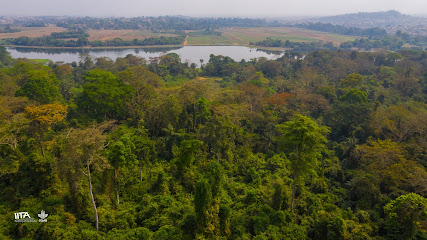
Idanre Forest Reserve
Experience the tranquility and diverse wildlife of Idanre Forest Reserve, a hidden natural gem in Ondo, Nigeria, perfect for nature enthusiasts.

Ideere Hills
Explore Ideere Hills in Ibadan – a serene tourist destination offering stunning views, rich culture, and nature's beauty in Nigeria.
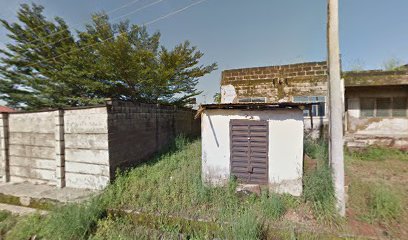
IITA Forest Project
Explore the IITA Forest Project in Ibadan, a hub for sustainable forestry and biodiversity, where nature meets education in a beautiful setting.

Oba Hills Forest Reserve
Explore the lush beauty and tranquility of Oba Hills Forest Reserve in Osun, Nigeria, a perfect retreat for nature lovers and adventure seekers.

Unmissable attractions to see
UI Botanical Garden
Discover the beauty and tranquility of the UI Botanical Garden in Ibadan, a haven for plant lovers and a perfect getaway for families.
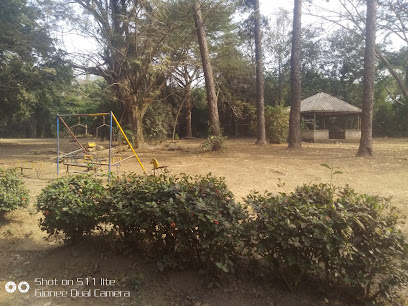
National Museum of Unity
Explore Nigeria's rich cultural heritage at the National Museum of Unity in Ibadan, a treasure trove of artifacts and history.
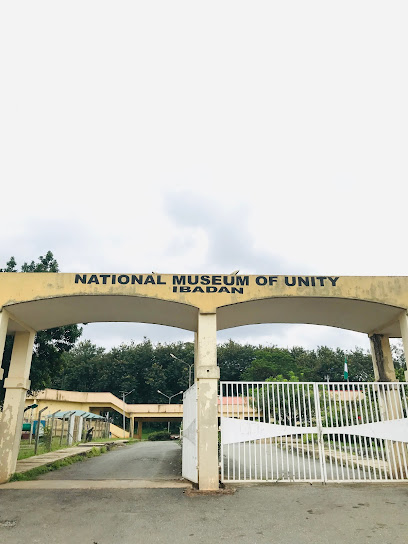
MỌ́NÍYÀ Motor Park
Experience the tranquility of Mọ́NÍYÀ Motor Park, a lush green oasis in Oyo perfect for relaxation, picnics, and cultural immersion.
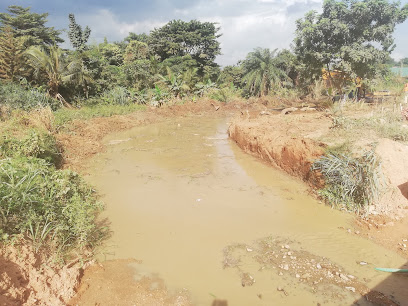
Tree Club Park
Explore the lush landscapes and tranquil atmosphere of Tree Club Park, a serene retreat in the heart of Ibadan, perfect for relaxation and nature appreciation.
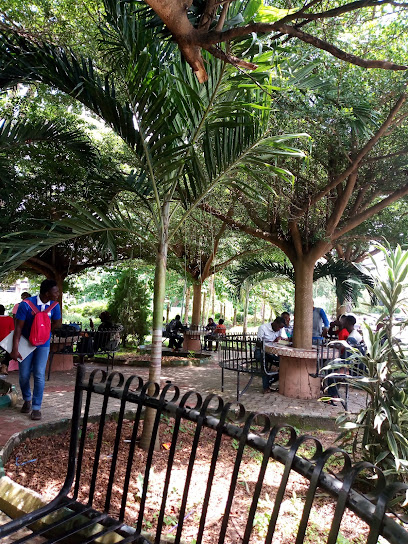
Gamaliel Onosode Park Ibadan
Experience peace and nature at Gamaliel Onosode Park, a scenic haven in Ibadan ideal for relaxation and outdoor activities.
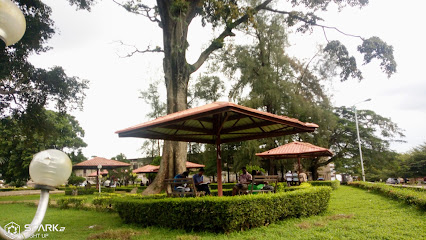
Zoological Musuem, University of Ibadan
Explore Nigeria's rich biodiversity at the Zoological Museum, University of Ibadan, featuring diverse zoological specimens and educational exhibits.
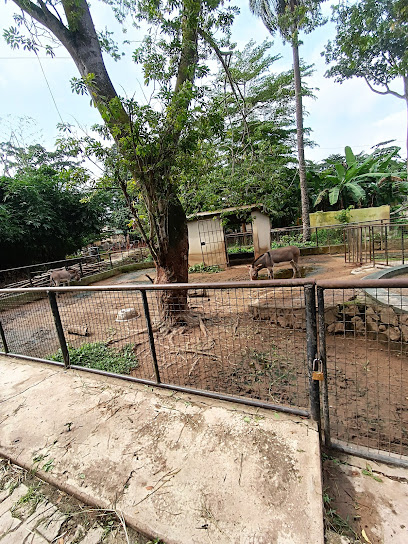
Oyo State Cultural Centre
Explore the vibrant cultural heritage of Oyo State at the Oyo State Cultural Centre, a hub for art, music, and traditional performances in Ibadan.
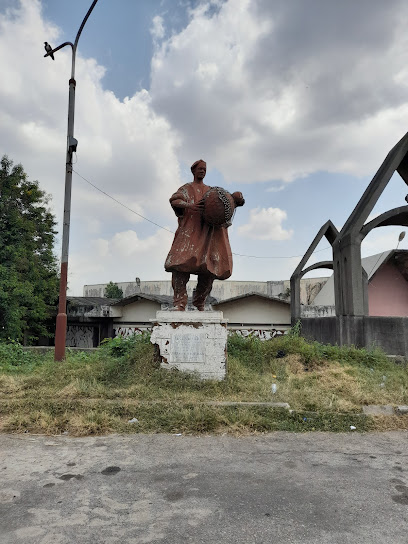
IITA Forest Center
Discover the IITA Forest Center, a tranquil park in Oyo, Nigeria, where nature and conservation come together for an unforgettable experience.

Aba pan
Discover tranquility at Aba Pan Park, a peaceful retreat in Ibadan, where nature and relaxation await every visitor.

Dreamland Park
Discover the serene beauty of Dreamland Park in Ibadan, a perfect urban oasis for relaxation, family fun, and nature exploration.
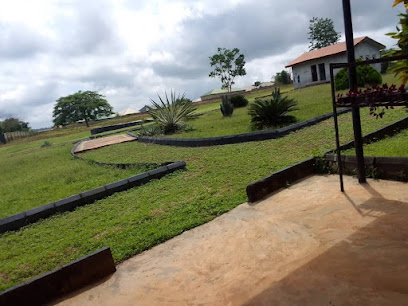
Mellanby Water Fount
Explore the Mellanby Water Fount, a stunning fountain in Ibadan that offers a peaceful retreat and beautiful scenery for all visitors.
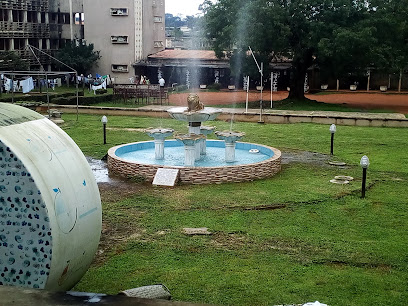
Mapsy Relaxation Centre
Discover the perfect blend of relaxation and fun at Mapsy Relaxation Centre, a premier resort hotel and amusement park in Oyo, Nigeria.
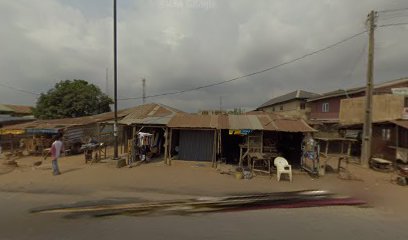
Odu'a Museum and Hall of Fame
Explore the vibrant heritage of the Yoruba people at Odu'a Museum and Hall of Fame in Ibadan, a cultural gem showcasing Nigeria's rich history.
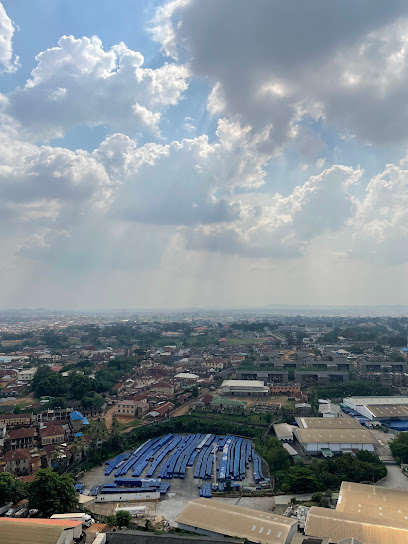
The JF Adeajayi Gardens, UI.
Discover the lush beauty and tranquility of JF Adeajayi Gardens at the University of Ibadan, a perfect escape for nature lovers and peace seekers.
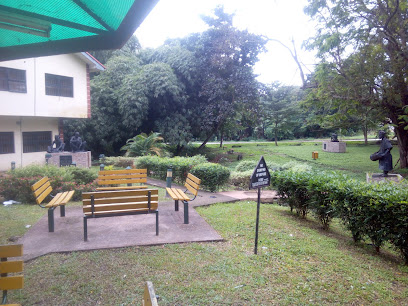
Napes Garden
Experience tranquility at Napes Garden, Ibadan's hidden gem of lush landscapes and vibrant flora.
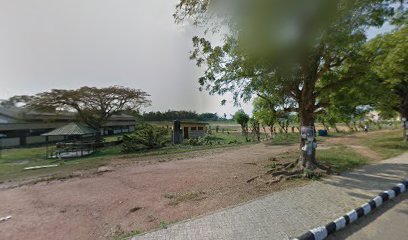
Essential places to dine
Ultima Restaurant, Bodija
Discover authentic Nigerian flavors and international dishes at Ultima Restaurant in Bodija - a culinary gem in Ibadan.

Tamberma Ibadan
Experience authentic Indian cuisine at Tamberma Ibadan - where every dish tells a story.
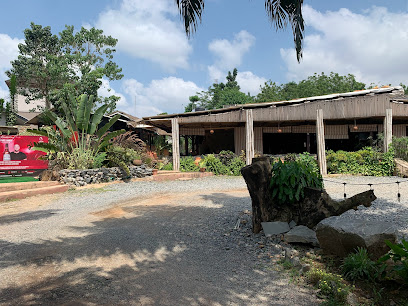
Ose Olorun Food Canteen (Amala Skye)
Experience the authentic taste of Nigeria at Ose Olorun Food Canteen—where traditional flavors meet a vibrant atmosphere.

Latitude Café & Lounge
Discover Latitude Café & Lounge in Ibadan for delightful breakfasts and relaxing lounge vibes amidst shopping excitement.
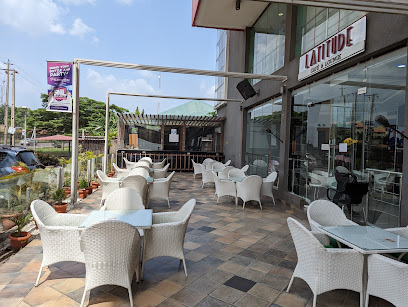
Marthas Kitchen
Discover culinary delights at Martha's Kitchen in Ibadan – where local flavors meet international cuisine for an unforgettable dining experience.

Kilimanjaro Restaurant Bodija
Discover Kilimanjaro Restaurant in Ibadan: where traditional Nigerian cuisine meets modern dining in an inviting atmosphere.

Kilimanjaro Restaurant Samonda
Experience delicious fast food at Kilimanjaro Restaurant Samonda - where taste meets convenience in Ibadan.

Ultima Restaurant And Lounge
Experience the rich flavors of Nigeria and beyond at Ultima Restaurant And Lounge - where culinary excellence meets vibrant atmosphere.

Chicken Chaos
Experience the fusion of local flavors and farm-fresh ingredients at Chicken Chaos in Ibadan – where every meal is a celebration.
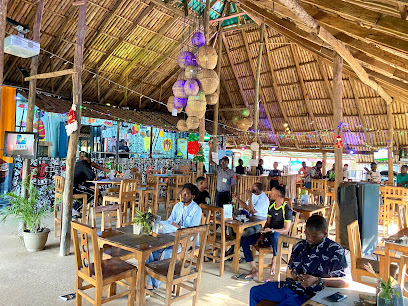
Richbites Restaurant
Discover Richbites Restaurant in Ibadan: A delightful fusion of local and fast food flavors awaits you.

Bibire Food Restaurant
Experience authentic Nigerian flavors at Bibire Food Restaurant in Ibadan—where every dish tells a story.

IITA cafetaria
Discover a unique dining experience at IITA Cafetaria, where local flavors meet tranquility amidst nature's beauty.
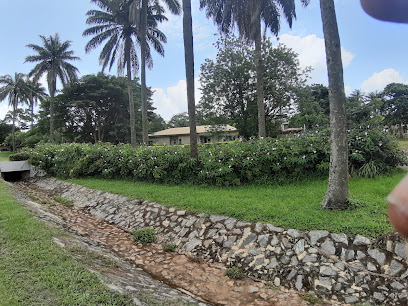
Da Kings' Grill & Coffee Restaurant
Discover delicious breakfast options and more at Da Kings' Grill & Coffee Restaurant in Ibadan - where every meal is a celebration of flavor.
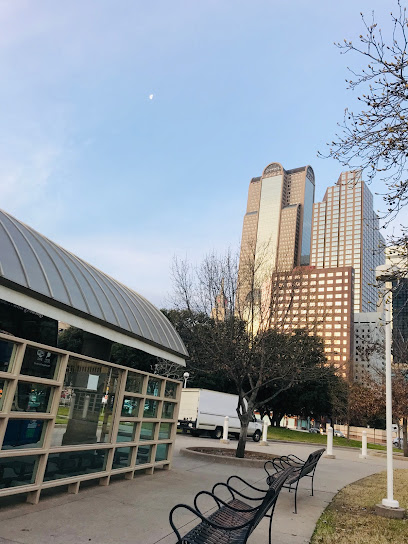
Calabar Kitchen
Experience the vibrant flavors of Nigeria at Calabar Kitchen in Ibadan – where every dish tells a story!
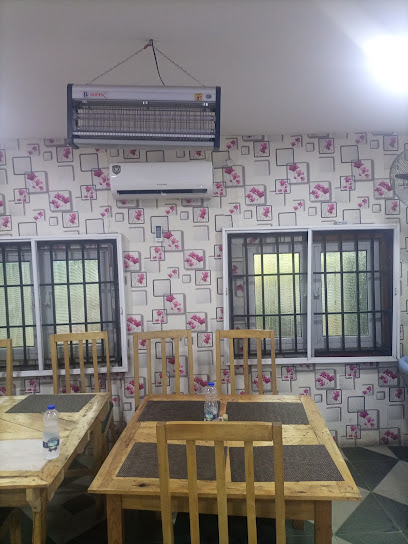
Bayleaf Resto Lounge
Discover family-friendly dining at Bayleaf Resto Lounge in Ibadan, where delicious meals meet warm hospitality.

Markets, malls and hidden boutiques
Topsea Stores
Shop local at Topsea Stores, the vibrant supermarket in Ibadan offering a diverse selection of groceries, local delicacies, and household essentials.

Daffodils Undies World
Explore a stunning selection of lingerie at Daffodils Undies World in Ibadan, where style meets comfort for every body type.

Rubeeys Stores
Explore quality baby and children's products at Rubeeys Stores, your family-friendly shopping destination in Ibadan, Nigeria.

Da Viva Oyo Road Ibadan
Explore the vibrant fashion scene of Ibadan at Da Viva, where local style meets contemporary trends in a welcoming boutique atmosphere.

Jereque Stores
Explore Jereque Stores for unique home goods and kitchen essentials in Alaka, Oyo. A perfect blend of quality and affordability awaits you.

Slaythemerch
Explore Slaythemerch in Ibadan for a unique shopping experience in stylish lingerie, swimwear, and women's clothing that caters to all sizes.
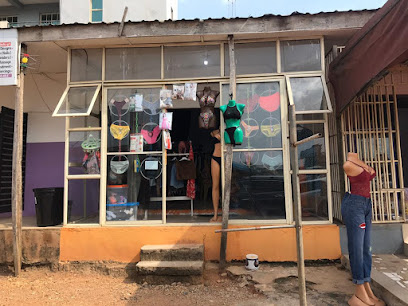
Taikel clothings
Explore the vibrant fashion scene of Ibadan at Taikel Clothings, where local craftsmanship meets contemporary style in a unique shopping experience.

NIKSOL SUPERSTORE
Discover local flavors and groceries at NIKSOL SUPERSTORE, a vibrant hub in the Akingbile neighborhood of Ibadan, Nigeria.
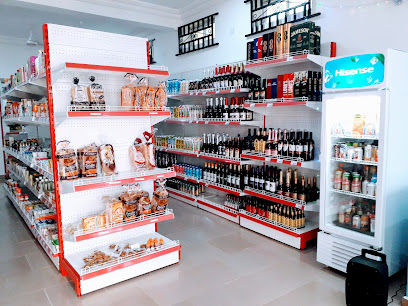
Y Collections
Explore the vibrant fashion culture at Y Collections in Ibadan, where stylish clothing meets rich Nigerian heritage.

Ganovi
Experience the essence of Nigeria at Ganovi Gift Shop in Ibadan, where unique souvenirs and local crafts await every traveler.

Aduke Luxury stores
Discover exquisite handbags at Aduke Luxury Stores, the go-to destination for fashion-forward tourists in Ibadan, Nigeria.

Al hayyah closet
Discover unique fashion finds at Al Hayyah Closet in Ibadan, Nigeria, where contemporary style meets local flair.

God's Own Venture
Explore God's Own Venture in Ibadan, a women’s clothing store offering trendy styles and unique finds at affordable prices while immersing in local fashion culture.

FKS STORES IBADAN
Explore FKS Stores in Ibadan for a unique blend of kitchen supplies, stylish shoes, and authentic souvenirs that capture the spirit of Nigeria.

The Royal Smile Surprises
Explore unique gifts and local treasures at The Royal Smile Surprises in the heart of Ibadan, a must-visit for every tourist seeking authentic souvenirs.

Essential bars & hidden hideouts
360 Lounge N Bar
Immerse yourself in the lively ambiance of 360 Lounge N Bar, where delicious drinks and vibrant nightlife create unforgettable experiences in Ibadan.

Cruzer Lounge & Bistro
Discover the vibrant atmosphere of Cruzer Lounge & Bistro in Ibadan, where exquisite dining meets electrifying nightlife for an unforgettable experience.
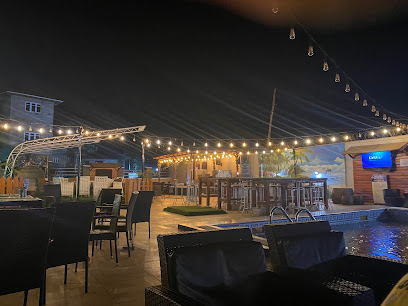
Sluggers Sports Bar & Lounge
Discover the lively nightlife of Ibadan at Sluggers Sports Bar & Lounge, where relaxation meets a vibrant party atmosphere.

Switch lounge and bar
Discover the lively spirit of Ibadan at Switch Lounge and Bar, a hotspot for delicious drinks and a vibrant nightlife experience.
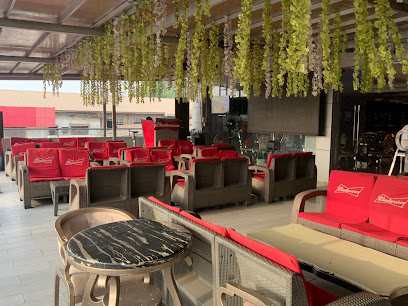
Otis Lounge
Discover the lively Otis Lounge in Ibadan, a perfect blend of comfort and entertainment for a memorable night out.

Pythagoras Grill and Bar
Experience vibrant nightlife at Pythagoras Grill and Bar, where delightful cuisine meets refreshing drinks in the heart of Ibadan.
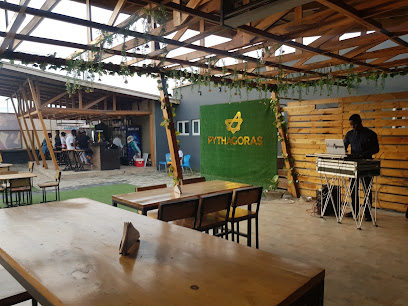
Buffalo Lounge
Discover the lively Buffalo Lounge in Ibadan, where delicious grilling meets an energetic atmosphere, perfect for dining and events.
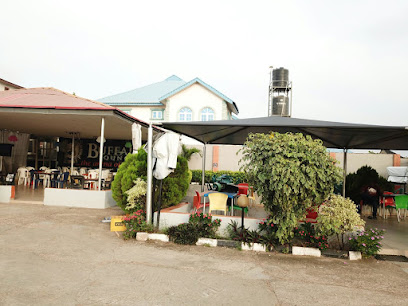
Pete's Bar
Discover Ibadan's nightlife at Pete's Bar, where great drinks and good company create unforgettable memories.

Mauve Lounge & Restaurant
Discover the vibrant dining and nightlife experience at Mauve Lounge & Restaurant, the heart of Ibadan's culinary scene.

Greol Lounge and Bar
Discover the vibrant atmosphere of Greol Lounge and Bar in Ibadan, where great food, drinks, and entertainment create unforgettable memories.

BOLLADS RESTAURANT & LOUNGE
Experience the vibrant flavors and lively ambiance at Bollads Restaurant & Lounge, a must-visit culinary destination in Ibadan.

The Hub Lounge
Experience the vibrant nightlife at The Hub Lounge in Ibadan, where great drinks, music, and ambiance come together for a memorable evening.

Eclipse Lounge And Bar
Experience relaxation and great drinks at Eclipse Lounge And Bar in Ibadan, a perfect escape for tourists seeking a laid-back atmosphere.

Vegas lounge & Bar
Explore the vibrant nightlife at Vegas Lounge & Bar in Ibadan, where great drinks and lively atmosphere await every visitor.

Local Phrases about IITA Forest Reserve
-
- HelloBawo
[Bah-woh] - GoodbyeOdabo
[Oh-dah-boh] - YesBẹẹni
[Beh-nee] - NoBẹẹkọ
[Beh-koh] - Please/You're welcomeẸ jọ
[Eh-jo] - Thank youẸ se
[Eh-seh] - Excuse me/SorryẸ ṣé
[Eh-sheh] - How are you?Bawo ni?
[Bah-woh nee] - Fine. And you?Daadaa. O da?
[Dah-dah. Oh dah] - Do you speak English?Ṣe o n ṣe ede oyinbo?
[Sheh oh n sheh eh-deh oy-in-boh] - I don't understandMi o mọ
[Mee oh moh]
- HelloBawo
-
- I'd like to see the menu, pleaseMo fẹ́ ránṣẹ́ meni, ẹ jọ
[Moh feh rahn-sheh meh-nee, eh-jo] - I don't eat meatMi kò n je eran
[Mee koh n jeh eh-rahn] - Cheers!Ẹ o!
[Eh oh] - I would like to pay, pleaseMo fẹ́ tẹ, ẹ jọ
[Moh feh teh, eh-jo]
- I'd like to see the menu, pleaseMo fẹ́ ránṣẹ́ meni, ẹ jọ
-
- Help!Ẹ jọ
[Eh-jo] - Go away!Lo sọ!
[Loh soh] - Call the Police!Wọlé orúkọ àṣẹ!
[Woh-leh oh-roo-koh ah-sheh] - Call a doctor!Wọlé ọlọrun!
[Woh-leh oh-loh-roon] - I'm lostMo ti lọ
[Moh tee loh] - I'm illMo ti n gbẹran
[Moh tee en gbeh-rahn]
- Help!Ẹ jọ
-
- I'd like to buy...Mo fẹ́ rà...
[Moh feh rah] - I'm just lookingMo n ri sọ
[Moh n ree soh] - How much is it?Eyi kò tó lọ?
[Ay-yee koh toh loh] - That's too expensiveYàáń yẹn ti dé kiri
[Yah-ahn yehn tee deh kee-ree] - Can you lower the price?Se o le kọ iṣẹ́?
[Sheh oh leh koh ee-sheh]
- I'd like to buy...Mo fẹ́ rà...
-
- What time is it?Kíni o tún ni?
[Kee-nee oh toon nee] - It's one o'clockO wọkan
[Oh won-kahn] - Half past (10)Méjì kinni
[Meh-jee kee-nee] - MorningỌjọ́ aarọ
[Oh-joh aah-roh] - AfternoonỌjọ́ rẹ
[Oh-joh reh] - EveningỌsán
[Oh-sahn] - YesterdayOṣu
[Oh-soo] - TodayỌn
[Oh-nn] - TomorrowỌla
[Oh-lah] - 1Ọkan
[Oh-kahn] - 2Meji
[Meh-jee] - 3Mẹta
[Meh-tah] - 4Merin
[Meh-reen] - 5Marun
[Mah-roon] - 6Mefa
[Meh-fah] - 7Meje
[Meh-jeh] - 8Mejo
[Meh-joh] - 9Mesan
[Meh-sahn] - 10Mẹwa
[Meh-wah]
- What time is it?Kíni o tún ni?
-
- Where's a/the...?Nibo ni...?
[Nee-boh nee] - What's the address?Kíni adirẹsì?
[Kee-nee ah-deh-reh-see] - Can you show me (on the map)?Se o le fihan mi (si àpọ)?
[Sheh oh leh fee-hahn mee see ah-poh] - When's the next (bus)?Nígbà tí ó wà láàárín (bọọsi)?
[Nee-gbah tee oh wah lah-ah-ree boh-oh-see] - A ticket (to ....)Ètíkẹti (si ....)
[Eh-tee-keh-tee see]
- Where's a/the...?Nibo ni...?
History of IITA Forest Reserve
-
The IITA Forest Reserve, located in Ibadan, Nigeria, was established in 1967 as part of the International Institute of Tropical Agriculture (IITA). Founded to address the challenges of tropical agriculture and food security in Africa, the forest reserve was created to serve as a living laboratory for research and conservation.
-
The IITA Forest Reserve spans approximately 350 hectares and is home to a rich diversity of flora and fauna. The reserve plays a crucial role in conservation efforts, preserving various species of plants, birds, and insects. It serves as a sanctuary for endangered species and is a vital part of the region's ecological heritage.
-
The forest reserve has been a focal point for numerous groundbreaking research projects. Scientists at IITA have utilized the reserve to study agroforestry, sustainable farming practices, and the impact of deforestation. These research efforts have not only contributed to academic knowledge but also provided practical solutions for local farmers.
-
Beyond its scientific value, the IITA Forest Reserve holds cultural importance for the local communities. The forest is intertwined with local folklore and traditions, offering a glimpse into the cultural fabric of the region. It is a place where traditional knowledge and modern science coexist, fostering a deeper understanding of the natural world.
-
The IITA Forest Reserve is also an educational hub, attracting students, researchers, and nature enthusiasts from around the world. Various programs and workshops are conducted to educate visitors about biodiversity, conservation, and sustainable agriculture. These initiatives aim to inspire the next generation of environmental stewards.
-
In recent years, the IITA Forest Reserve has become a popular destination for ecotourism. Visitors can explore the reserve through guided tours, bird watching, and hiking trails. The serene environment and lush greenery offer a perfect escape from the hustle and bustle of city life, making it a cherished retreat for nature lovers.
-
The IITA Forest Reserve actively engages with the local community through various outreach programs. These initiatives aim to promote environmental awareness and involve local residents in conservation efforts. Community participation is seen as a vital component in the ongoing preservation of the forest's unique ecosystem.
IITA Forest Reserve Essentials
-
The IITA Forest Reserve is located in Ibadan, Oyo State, Nigeria. The nearest international airport is Murtala Muhammed International Airport in Lagos, about 130 kilometers away. From Lagos, travelers can take a domestic flight to Ibadan Airport, which is around 30 minutes by air. Alternatively, you can take a bus or hire a taxi from Lagos to Ibadan, which typically takes around 2 to 3 hours by road. Once in Ibadan, local taxis or ride-hailing services can take you directly to the IITA Forest Reserve.
-
Within Ibadan, taxis and ride-hailing services like Uber and Bolt are readily available. Public buses and minibuses (danfos) operate throughout the city, but they can be crowded and less reliable. Renting a car is also an option, though it is advisable to hire a local driver familiar with the area. The IITA Forest Reserve itself is best explored on foot or by bicycle, which can be rented at the reserve.
-
The official currency in Nigeria is the Nigerian Naira (NGN). Credit cards are accepted in some hotels, restaurants, and larger shops in Ibadan, but it is advisable to carry cash, especially when visiting the IITA Forest Reserve. ATMs are available in Ibadan, but ensure you have enough cash before heading to the reserve, as there are no ATMs within the forest area.
-
Ibadan is generally safe for tourists, but standard precautions should be taken. Avoid walking alone at night and keep an eye on your belongings in crowded places. Areas with higher crime rates targeting tourists include some parts of the city center, so it's best to stick to well-populated and well-lit areas. The IITA Forest Reserve itself is very secure, with controlled access and security personnel on site.
-
In case of emergency, dial the Nigerian emergency number 112 for immediate assistance. The IITA Forest Reserve has first aid facilities and trained staff on site. For more serious medical issues, the University College Hospital in Ibadan is well-equipped and can provide comprehensive care. Ensure you have travel insurance that covers medical emergencies.
-
Fashion: Do dress modestly and comfortably, especially considering the warm climate. Lightweight, breathable clothing is recommended. Religion: Do show respect for local customs and traditions. Public Transport: Do be polite and patient when using public transport. Avoid displaying valuables. Greetings: Do greet people with a handshake. A warm smile and a friendly 'hello' go a long way. Eating & Drinking: Do try local delicacies and accept food offerings graciously. Don't eat in public places during Ramadan if you happen to visit during this period, as it is considered disrespectful.
-
To experience the IITA Forest Reserve like a local, take part in the guided nature walks and bird-watching tours offered by the reserve. Interact with the staff and researchers, who are often willing to share their knowledge about the flora and fauna. Visit the local markets in Ibadan for fresh produce and traditional Nigerian goods. Engaging with locals can provide deeper insights into the culture and history of the area.
Nearby Cities to IITA Forest Reserve
-
Things To Do in Abeokuta
-
Things To Do in Lagos
-
Things To Do in Porto-Novo
-
Things To Do in Cotonou
-
Things To Do in Benin City
-
Things To Do in Ouidah
-
Things To Do in Lokossa
-
Things To Do in Aneho
-
Things To Do in Warri
-
Things To Do in Atakpamé
-
Things To Do in Notse
-
Things To Do in Lomé
-
Things To Do in Asaba
-
Things To Do in Onitsha
-
Things To Do in Kpalimé




